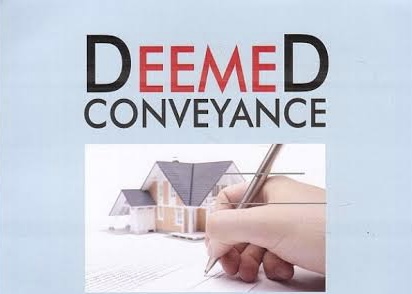By Nazaqat Lal, Advocate & Solicitor, Bombay High Court
nazaqat_lal@hotmail.com | March 20, 2022
INTRODUCTION
Section 11 of the Maharashtra Ownership Flats (Regulation of the promotion of construction, sale, management and transfer) Act, 1963 (“the Act”) requires the promoter to convey all his right, title and interest in the land and building in favour of the co-operative society or organization of flat purchasers. There is often a delay on the part of the promoters in executing such conveyance. Such delay prejudices the flat purchasers and their right to fully enjoy and exploit their property. The concept of deemed conveyance seeks to remedy this.
ANALYSIS
If the promoter fails to convey his right, title and interest in the land and building within 4 months from the formation and registration of the society or company, or within such time as maybe agreed upon by and between the promoter and flat purchasers, the society can make an application to the competent authority for issuing a certificate/an order stating that such society is entitled to have a unilateral deemed conveyance. Such application is required to be accompanied by true copies of the registered agreements for sale and all other relevant documents, including the occupation certificate, if any.
On receipt of such application, the competent authority shall make enquiry, verify the authenticity of the documents submitted and give the promoter a reasonable opportunity to be heard. If satisfied, the competent authority shall issue a certificate to the Sub-Registrar stating that it is a fit case for enforcing unilateral execution of a conveyance deed conveying the right, title and interest of the promoter in the land and building in favour of the society.
On receipt of such certificate and unilateral instrument of conveyance, the Sub-Registrar shall give the promoter an opportunity to show cause why such unilateral instrument of conveyance should not be registered as ‘deemed conveyance’. If satisfied, the Sub-Registrar shall register the instrument as ‘deemed conveyance’.
As the name suggests, deemed conveyance is a unilateral execution of a conveyance deed whereby the promoter is deemed to have conveyed his right, title and interest in the land and building in favour of the society of flat purchasers, followed by the unilateral registration thereof under the Registration Act, 1908. The provision for deemed conveyance was inserted in the interest of flat purchasers. However, there are certain practical difficulties that arise that prevent flat purchasers from taking benefit of this provision or prove to be a hindrance.
CERTAIN PRACTICAL DIFFICULTIES THAT ARISE
One issue that usually arises is that of stamp duty. If all the flat purchase agreements of the society members (including agreements for shops, garages and parking) are duly stamped and registered and the full FSI potential of the land on which the society building stands has been utilised, the instrument of deemed conveyance shall be treated as a supplementary document to such agreements and the stamp duty and registration fees payable on the instrument of deemed conveyance will be nominal.
However, if any one or more society member’s flat purchase agreements or agreements for shops, garages and/or parking are not duly stamped and registered, stamp duty liability on such agreements will have to be cleared. Further, if the FSI potential of the land on which the society building stands has not been fully utilized, stamp duty will be payable on the present market value of such unutilized FSI, making the stamp duty payable on the instrument of deemed conveyance, substantial. Notification dated 12th April, 2012 sets out the detailed procedure. Given the property prices in Mumbai, this stamp duty liability may run into several lakhs or crores.
Another issue that arises in some cases is that the promoter has the right to develop only a portion of the land which is part of a larger undivided plot. There are also cases in which phase wise redevelopment is done of multiple buildings standing on the same sub-divided plot. When an order of deemed conveyance is passed in such cases, disputes often arise about the area of land conveyed under such order/certificate of deemed conveyance.
Computing or quantifying the entitlement of a society applying for deemed conveyance may not always be easy as the society maybe entitled to the land on which the society building stands, as well as proportionate right in common areas, internal access roads, gardens, etc. together with other societies.
Lastly, a society being a successor in title of the promoter cannot claim any rights higher than that of the promoter. Defects in title of the promoter cannot be remedied by execution of an instrument of deemed conveyance nor are the rights of original owners of the land affected or influenced by an order of deemed conveyance or the registration of the certificate thereafter. Original owners can raise disputes of title, computation and quantification of area, FSI, etc. by filing a civil suit. The civil suit will be decided on its own merits unaffected by any order of deemed conveyance that may have been passed.
CONCLUSION
When a promoter fails to fulfil his obligations of conveying his right, title and interest in the land and building, the competent authority steps in to fulfil such obligations to avoid hardship to the flat purchasers. However, to take the benefit of the provision of deemed conveyance, flat purchasers and societies must have all their documents in place and be willing to comply with all applicable provisions of law. Flat purchasers and societies must also have sufficient funds available with them as the stamp duty payable on an instrument of deemed conveyance may run into several lakhs or crores in certain cases. Lastly, a society being a successor in title of the promoter cannot claim any rights higher than that of the promoter.







